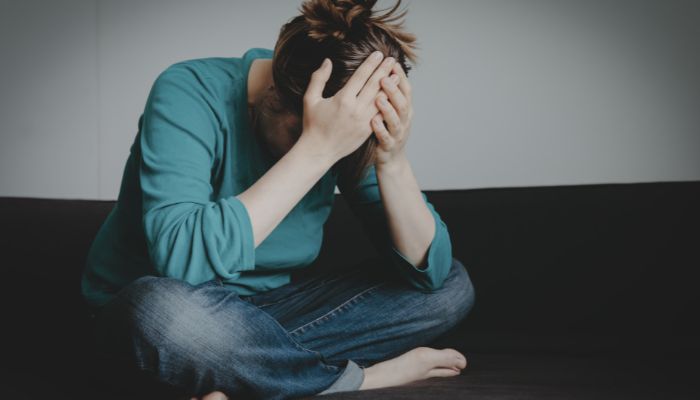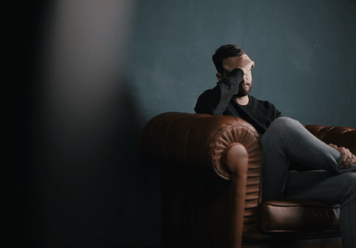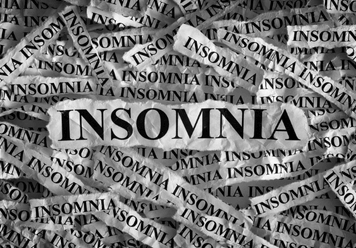There is no best approach to fall asleep after loss and overcoming grief. The grieving processes you use to cope with loss will be unique. The ways you learn to fall asleep following a loss will also be unique. It’s typical for people to experience difficulty sleeping because of the emotional turmoil they experience as they cope with their loss. Sleeping can be challenging after a loss. People often struggle to obtain a decent night’s sleep for various reasons, such as fear of being alone.
Is Having Insomnia After A Loss Normal?
Yes! Following a loss, sleeplessness is typical. Due to the events that surround a loss, it is common for some people to experience sleeplessness. When you lose someone, you might think about them more, and find it difficult to fall asleep. Your brain also makes various efforts to cope with the loss.

Why Can’t You Fall Asleep After Loss?
There are a variety of causes why some people have trouble getting or staying asleep, including:
1. Fear
You could worry that you’ll never meet someone who matches them. You may experience insomnia due to this fear, thinking about potential future problems and mentally rehearsing disputes and painful
2. Sorrow
You might feel sad and angry if your connection with your loved one didn’t work out. That unhappiness could make it difficult to fall asleep because sad people often prefer to lie motionless without falling asleep.
3. Physical Changes
Loss-induced hormonal changes may also contribute to difficulty falling asleep. You may be experiencing feelings of loss, withdrawal, or loneliness in addition to sadness and rage. You may also notice changes in your appetite or desire for unhealthy foods.
4. Hormonal Changes
One hormone that is significantly altered following a loss is cortisol. This stress hormone is increased when under stress or experiencing significant levels of anxiety, such as after experiencing loss. After a loss, elevated cortisol might make it harder to fall asleep and create physical discomfort.
5. Physical Symptoms
You may get physical pains that keep you up at night, such as headaches, stomachaches, or other aches. These symptoms may directly result from your loss’s tension and anxiety, or they may be brought on by consuming too much alcohol to dull the pain (alcohol is known to interfere with sleep). Regardless of their underlying source, these physical symptoms might make it difficult to enjoy a restful night’s sleep.

How To Fall Asleep After Loss
These tips can help you have a better night’s sleep overall, not only when you wake up in the middle of the night and need to get back to sleep. Returning to your previous sleep schedule after a loss can be challenging. Here are 7 tips to help you fall asleep after loss:
1. Keep a regular sleep schedule
Your body adjusts to going to bed and waking up at regular intervals. This implies that it can be challenging to get back on track if your sleep cycle is disrupted due to a poor night’s sleep or for any other reason, especially if you’re already processing the emotions of a loss. To get your sleep schedule back on track, attempt to go to sleep and wake up at the same time every day for a few weeks.
2. Do a Relaxing Activity
The greatest approach to clear your mind of stressful ideas or unfavorable emotions and get into the relaxed, sleepy condition you need to return to the land of dreams is to engage in an enjoyable activity. Try to relax by doing something enjoyable like reading a book, listening to calming music, or writing your thoughts from the day before.

3. Don’t worry excessively about sleeping time
It’s easy to become preoccupied with the possibility that you won’t receive the necessary rest when you go to bed later than usual. This frequently leads to a self-fulfilling prophesy in which your worry about not getting enough sleep makes it difficult for you to fall asleep, which reduces the amount of time you have for sleeping at night, exacerbates your anxiety, and makes it harder for you to fall asleep after a loss. When this occurs, it may result in hours of tossing and turning as your concerns about getting enough rest to persist in your mind.
4. Practice Relaxation Methods
You can learn easy methods and exercises to help you relax and stop worrying long enough to fall asleep. Before you find a relaxation technique that makes it easier for you to relax and go to sleep, you might need to try a few different ones. Try the relaxation methods listed below to unwind and get a better night’s sleep:
- Deep breathing
- Progressive muscle relaxation
- Guided imagery or visualization
- Listening to relaxing music
- Autogenic training
- Taking a warm bath
5. Exercise during the day
Exercise offers several advantages, including enhancing cardiovascular health and reducing your chance of developing many chronic diseases. According to research, physical activity can help prevent mental health problems like anxiety. According to another study, frequent exercise helps with both the length and quality of sleep. Aim for 150 minutes of moderate-intensity aerobic activity and at least two muscle-building sessions per week to get the benefits of exercise.
6. Limit caffeine and alcohol consumption in the evening
Alcohol may help you fall asleep right away. Still, after your body starts to metabolize it, it might disturb the second half of your sleep. Of course, caffeine works as a sleep aid. Instead of avoiding it an hour before bed, try increasing your daily water consumption.
7. Create a Grief Journal
You can externalize your ideas and stories through journaling when you’re grieving. It might allow you to tell yourself that it’s okay to stop thinking. Try journaling at least 30 minutes before night and picture putting everything you are thinking about on paper. You should keep a sleep journal and pen beside your bed and record all thoughts that keep you awake.

Conclusion
Although sleeplessness is often a sign of grief, it should not be ignored and should be treated carefully. Lack of sleep affects your immune system, mood, and capacity to carry out daily chores. Simply getting too little sleep can worsen your symptoms. The tips mentioned above will help you get your sleep back. Your ability to heal emotionally and physically from loss depends on how well you sleep.













